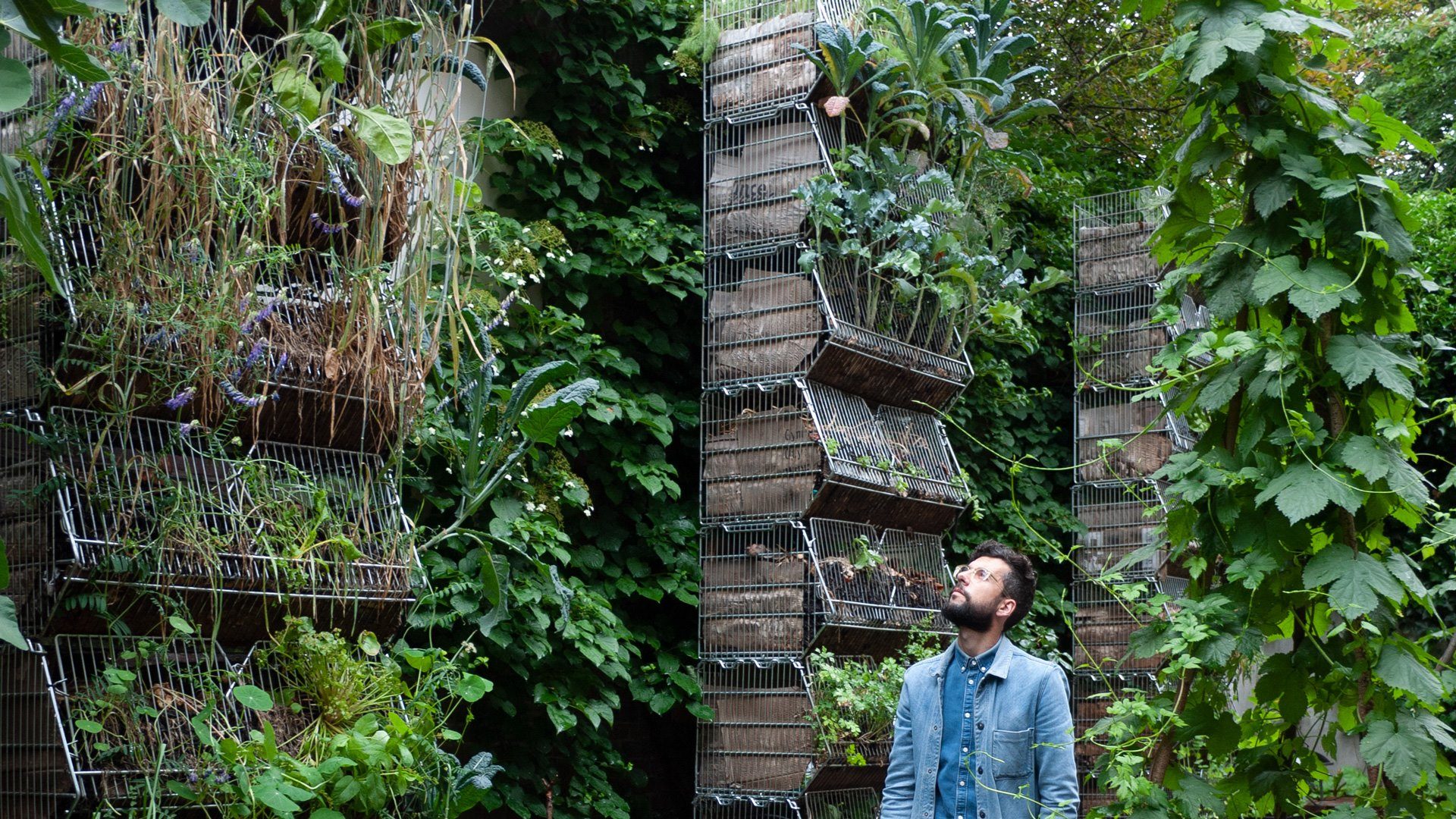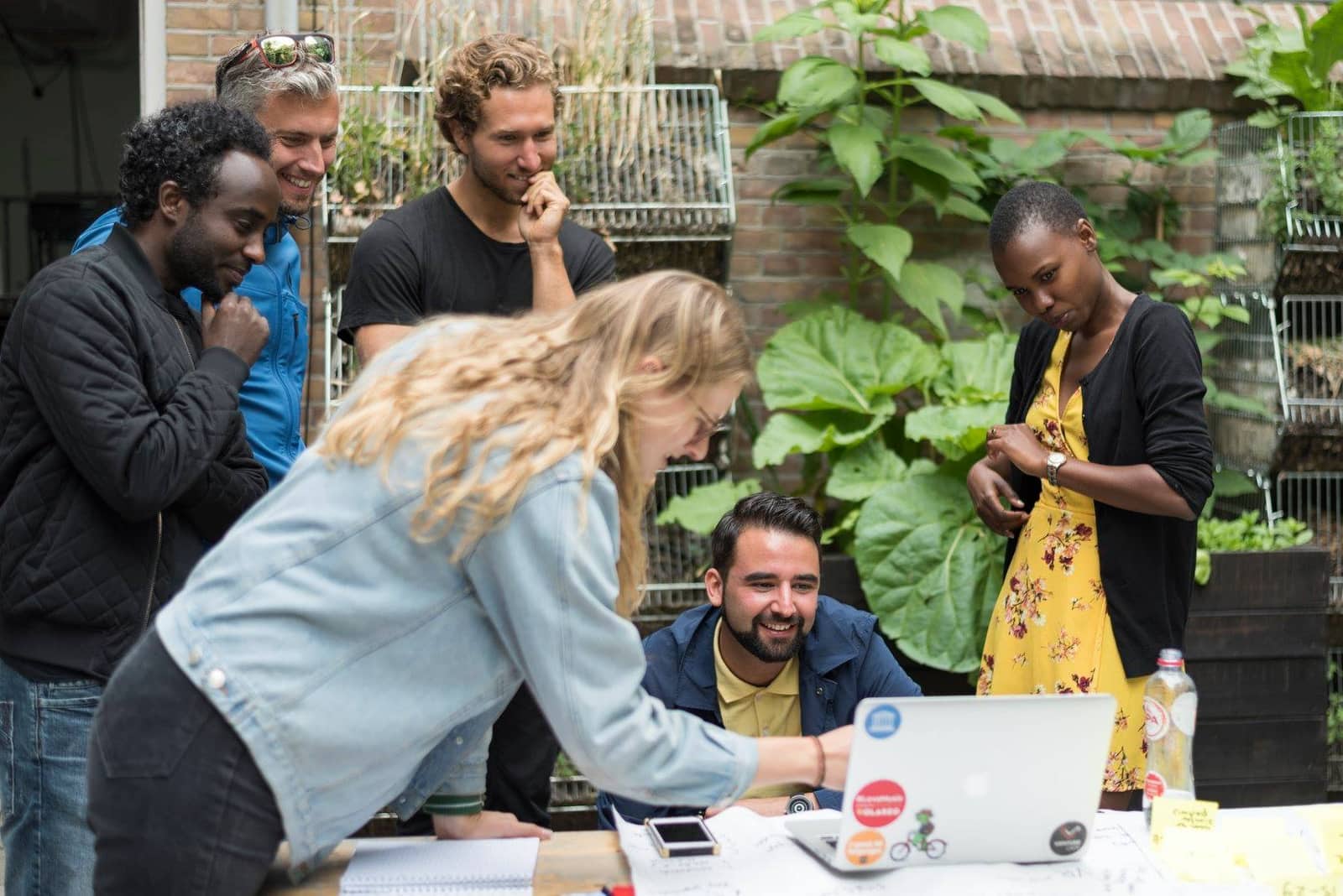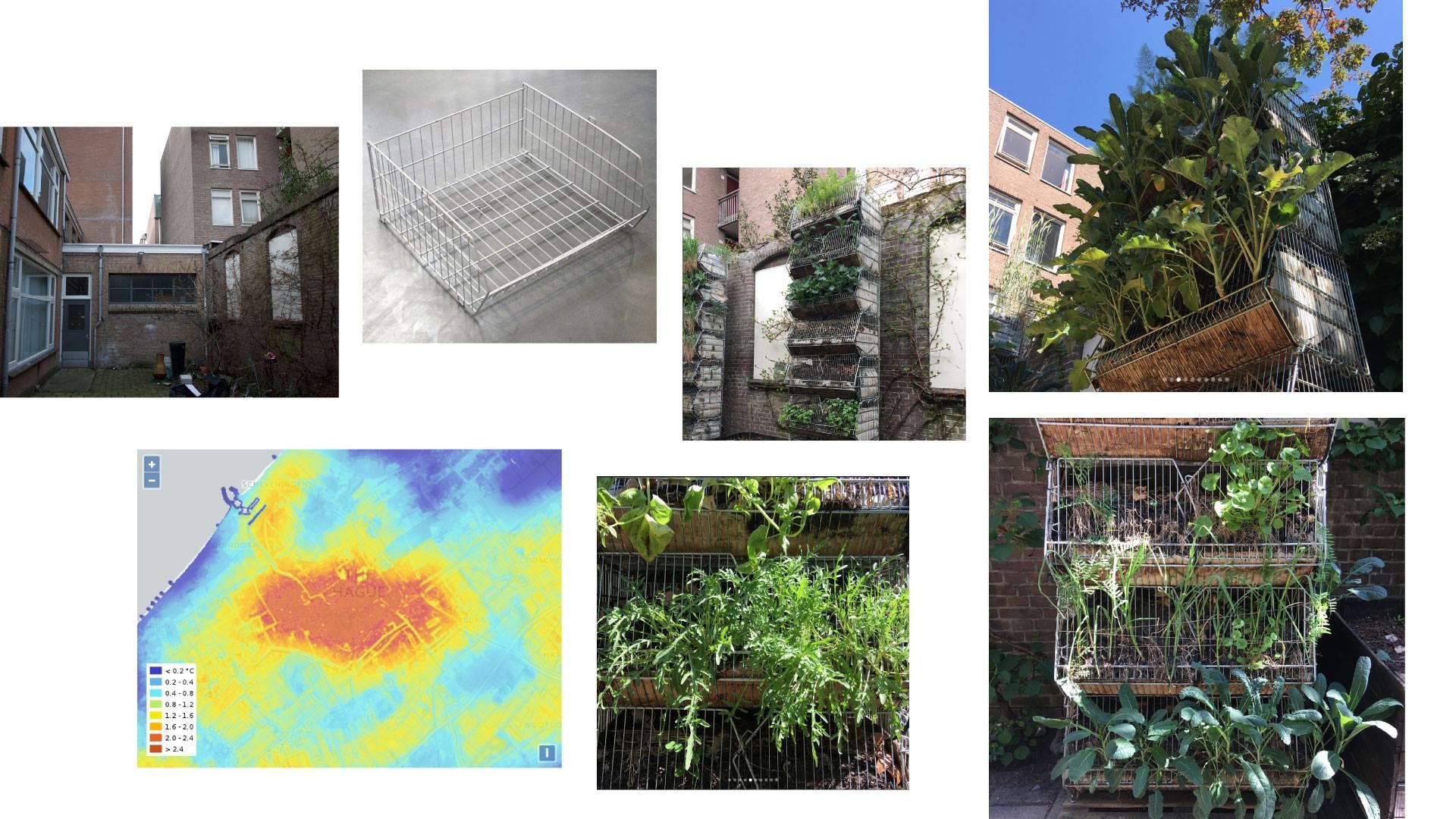(2017) Jonathan Looman – HyperGarden
HyperGarden is a collaborative design project initiated by Jonathan Looman and The Grey Space. Parallel to the start of The Grey Space in 2017, Looman – a multi-disciplinary designer, teacher and entrepreneur – realized the HyperGarden project in the backyard.




HyperGarden is an open source regenerative design research project and modular building system to retrofit cities, build soil by capturing carbon and growing edible vertical landscapes. Its a micro-gardening system to grow vegetables, fruits, mushrooms and herbs in the urban environment. Its an ongoing project which has since expanded to different locations in the city.
The project aims to contribute to making the urban environment more resilient and climate adaptive. The implementation and design takes a long term multi-generational approach focussing on utilising fragmented and unused urban real-estate, enabling the growth of edible plants and fungi in the vertical space and thereby forming habitat for a wide range of organisms.
Healthy soil life from composted organic waste allows for nutritious herbs, fruit, vegetables and fungi to grow. It is also a testing ground for radical concepts around regenerative architecture, urban circular horticulture and strategic nutrient supply.
The project engages and activates citizens to develop and maintain their own urban edible landscape. Thereby greening the city, creating a sense of community, harnessing otherwise wasted materials and improving the quality of the human condition. The long term design approach uses dynamic and circular economic models to ensure a productive and healthy garden with low input costs.